


War On Gaza
We launch our new section, Reflections, with a series of critical essays on the ongoing aggressions of the Israeli State against the Palestinian people in Gaza.

For the Kashmiri Muslim who desires liberation, i.e. Azadi, from India, two common responses have historically emerged. First, Indian liberals (and, liberals in general) pathologize this desire, turning it into an illness and an abnormality that ought to be explained, accounted for, and remedied. It is argued that something must have caused the Kashmiri Muslim, who is now seen as a patient of sorts, to have this desire.

Shapla: 10 Year Anniversary
ঈসায়ী ২০১৩ সালের মে মাসের ৫ তারিখ বাংলাদেশের ইতিহাসে্ এক মাইল ফলক। এর আগে থেকেই স্বাধীনতার সপক্ষের শক্তি বলে কথিত বাঙ্গালী জাতিবাদী লিঞ্ছিং মবরা লাগাতার চলতে থাকা শাহাবাগ আন্দোলনে মব জাস্টিস কায়েম করে ফেলে। শহীদ আবদুল কাদের মোল্লাকে প্রহসনের বিচারে যাবজ্জীবন সাজা দেওয়ার পরেও মন ভরে নাই রক্তপিপাসু এই শাহাবাগী হায়েনার দলের। তারা দল বেঁধে রাস্তায় নেমে জনজীবন পর্যুদস্ত করে ফেলে। সাধারন মানুষকে জিম্মি বানিয়ে তথাকথিত যুদ্ধপরাধীর ফাঁসী চাইতে থাকে। মার্কিন দেশেও রক্তপিপাসু বর্নবাদী সাদা লিঞ্ছিং মবরাও দল বেঁধে অরাজক পরিস্থিতি তৈরির ভিতর দিয়ে অভিযুক্ত কালোকে ন্যায্য সুবিচারের সকল সুযোগ বঞ্চিত করে, ঘৃনা ছড়ানোর ভিতর দিয়ে জনসমক্ষে হত্যা করতো।

The Rockets that Explode History
“Palestinians have once again made a historic stand against the renewed attack by Israeli colonial settlers and their occupation security forces. The heavily armed settler army attacking praying worshippers inside al-Aqsa were met by Palestinians creating makeshift barricades to keep the military out of the holy mosque. These initial scenes of several hundred Palestinians trapped inside al-Aqsa, building obstacles (with chairs and tables from the mosque against one of the best armed militaries in the world), while hosting Quran study circles and children completing their schoolwork, have been met with expanding waves of resistance from the rest of Palestine. Palestinians in the larger occupied West Bank and Gaza have been joined by Palestinians living inside Israel (Historic Palestine ‘48) who have launched protests unprecedented since the 1947-48 War. In the process they have unified not only the Palestinians separated across colonially demarcated borders inside the occupied whole of Palestine but also its diaspora, as well as the Muslim umma, and peoples across the world to struggle in a renewed uprising.”

The Taliban, Near Victory:Winning Against Empire as Covid -19 Looms* The withdrawal of foreign forces, in excess of 130,000 at its height in 2014, if completed, would make the Taliban the most potent and formidable political and military force in Afghanistan; leaving it in the position to determine the political future of the nation, along with their primary sponsors, Pakistan and the Gulf Arab states, particularly Saudi Arabia and Qatar, as well as Iran, which also, surprisingly, contributed significantly to Taliban military efforts in the west and northwest, coordinated by the Pasdaran/IRGC/Quds Force from 2010-2016. The Taliban insurgency has thus become one of the longest and most successful insurgencies in modern world history, as well as in the five centuries of Muslim resistance to western imperialism.”

Good and Bad Muslims in Xinjiang
“From Beijing’s point of view, of course, all this is of secondary importance. In official rhetoric it was the arrival of ‘Pan-Turkism’ and ‘Pan-Islamism’ at the turn of the twentieth century that laid the foundations for today’s violent extremism. But here too, history can complicate things. These twentieth-century ideologies did not automatically bring with them a critique of Chinese rule in Xinjiang, and more frequently expressed hope for anti-colonial collaboration with China. The 2019 White Paper cites Masʿud Sabri and Muhämmämd Imin Bughra as representatives of these radicalising trends, but both men spent considerable portions of their lives working alongside Chinese nationalists in the Guomindang—hardly the CV we would expect from a pair of die-hard extremists. A third much-maligned villain of this period is Sabit Damulla, who served as Prime Minister of the short-lived East Turkistan Republic in 1933–34. Yet, although obviously inspired by ‘Salafist’ theology, there is nothing in his writings to indicate that he felt religiously obligated to engage in anti-Chinese resistance.”

On Political Amnesia: Afghan and American Elections Overlook Civilian Killings
"President Ghani was forced to fire NDS spy chief Masoum Stanikzai over the murders, marking the first known repercussion the NDS has faced since Ghani took office. The president’s sudden "shock" about civilian casualties is all theatrics, as this is not the first, second or 20th time government killings have taken place. His gesture seemed to be more of a campaign stunt, rather than a substantial change in policy, as Ghani has been confronted with similar stories throughout his tenure as president, which he consistently ignored."
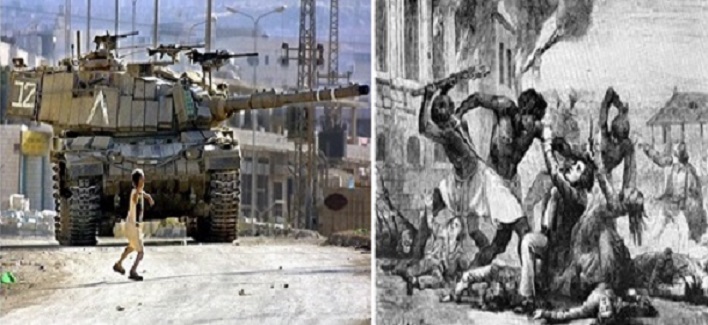
“Praying for a Strong Wind”: An Islamist Reading of American(-Muslim) Contradictions
“The police and prison combination is probably the largest force to hinder da'wah activities in Black communities. We are also realizing that inside America, Black people who engage in struggle are treated like terrorists. What Islamists are to America outside in the global War, Blacks are to white-power inside America. This relationship between Islamists and Black strugglers then, is not one of moral solidarity, but rather of an ontological consensus."

Empty Uyghur Mosques During Ramadan in China
“Many young Turkic Muslims continued to fast across the Uyghur Autonomous Region in Northwest China. At night restaurants were packed with students waiting with slices of watermelon and pieces of bread that had been distributed throughout the restaurant for those who were breaking the fast. The students waited for a silent signal from restaurant workers that it was time for iftar and that they could begin to eat and drink. Few people talked openly about the fast. Those who fasted were the silent majority.”
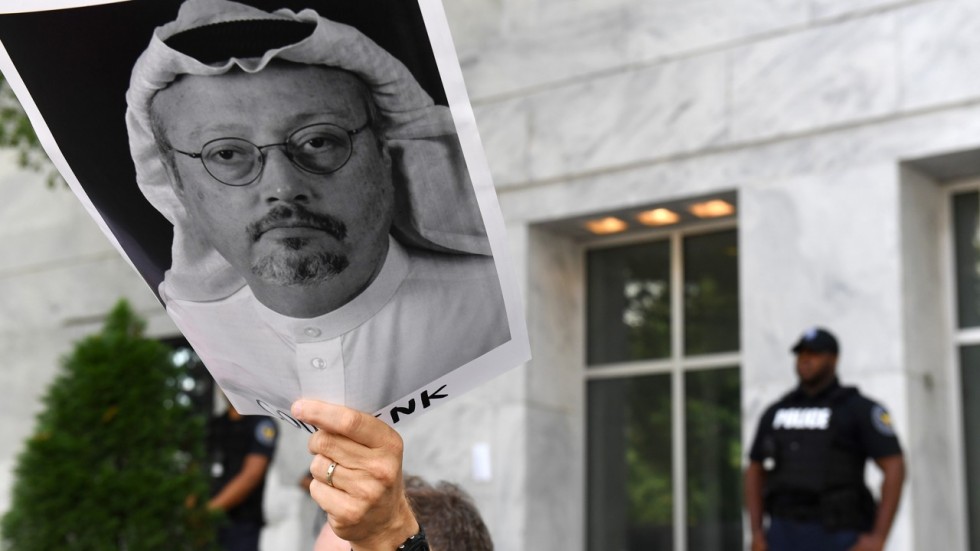
The Assassination of Jamal Khashoggi: Transformative Global Event or Flash in the Pan?
“Though Khashoggi was very much a pillar of the system and royal court, at most a reformist or ‘unreconstructed democrat,’ MBS still had plenty of motivations to eliminate him…the brand of ‘political Islam’ he favored and championed was a cross between those of the Muslim Brotherhood, Qatar, and Turkish President Recep Tayyip Erdogan—namely, MBS’ top three bêtes noires, since they represent the opposite model (within Islam) of the boy King’s own rule.”
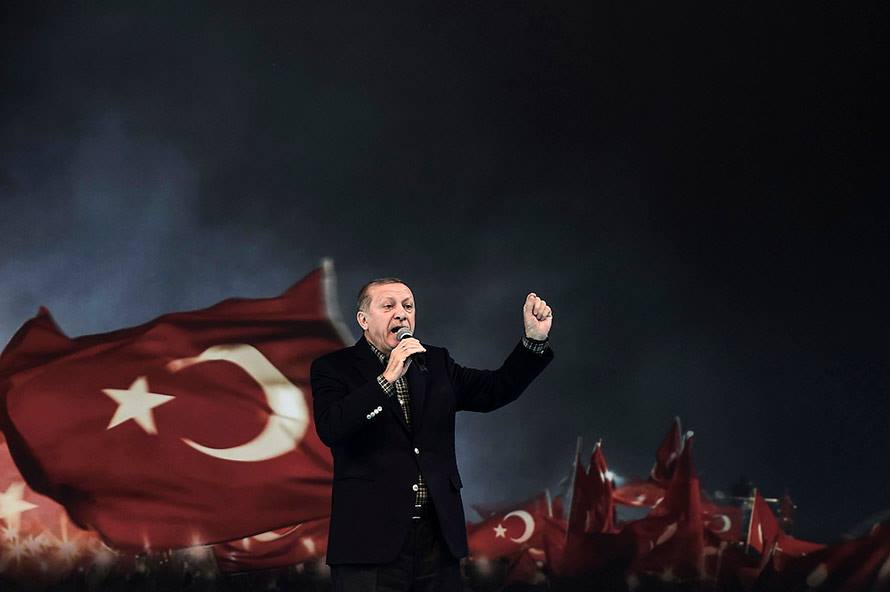
The 2018 Turkish Elections in Mainstream French Media "It is no exaggeration to say that in today’s French mainstream mediascape, Erdoğan is increasingly replacing former Iranian President Mahmoud Ahmadinejad or even Saddam Hussein as “Foreign Islamist Public Enemy Number One.” He has become a dangerous scare-and-hate figure, l’homme à abattre as the French expression goes (“the man to shoot down”), or at best “The Scary Muslim We Love to Hate.” In other words, he is indeed the geopolitical equivalent of a Tariq Ramadan, and one observes that his fate and treatment in French media is more or less the same."

The Tariq Ramadan Case: A Comprehensive Review "In what follows, I suggest that the truly odd legislative developments in the Ramadan case—the justice of exception we are witnessing at work, which will be addressed in the second half of this article—may be explained at least partially by the national (and to a lesser extent European) context in which they are occurring: a culture characterized by intense and pervasive Islamophobia in general (whose varied manifestations and links to France’s colonial history are beyond the scope of this piece) and more specifically, an already old French campaign to eliminate Ramadan from the intellectual, social, political and religious landscape of the nation."

Distorting Hamas’s Origins: A Response to Mehdi Hasan "This article argues that Hasan’s narrative is not only an impetuous and intellectually dishonest account of a complicated history, but also conceptually flawed. By presenting Islamists as terrorist fanatics created by the very enemy they are fighting, Hasan effaces the crucial role of Islamists in the movement against Israeli colonization, and understates their popular support. Elementary knowledge of the history of the Palestinian cause and Islamism in the Middle East refutes these hasty claims."

On Biblical Figures in the Islamic Tradition: A Conversation with Younus Mirza "In my work on the Bible and Qur’an, I have often found that early Western authors sought to understand the Qur’an in light of the Biblical tradition. Any difference they found in the Qur’an they saw as a mistake that Muhammad made in understanding or retelling the story. However, more recently scholarship, such as that of Marilyn Waldman, demonstrates that the Qur’an has a particular goal in using Biblical material."

In the Shadow of the Occupation
"In July 2017 I returned to my homeland Afghanistan for the fourth time in my life. With my Canon 70D DSLR in hand, I traveled around the capital city of Kabul and my native province of Logar, capturing images of the ordinary. While Kabul has transformed from a site of strict Islamic order to a dysfunctional modern city controlled by the US-supported Afghan government, much of Logar has remained as it was since I first visited as a child in 1999. Part of this stems from the presence of the Taliban, who have resisted modernization projects in the countryside. Despite - or perhaps because of - these differences, both provinces are important sites at which to trace the shadow of the American occupation."

A Preliminary Enquiry Concerning Aunties in Contemporary Understanding "A specter is haunting South Asian diasporic youth—the specter of the Aunty. All the diasporic youth of South Asia have entered into a holy alliance to exorcise this specter in order to disclose their own modern being. Reviled in her multiple forms, the Aunty is, as Maria Qamar argues, ‘a cross-cultural phenomenon that isn’t limited to a family member; she could be a neighbour, a family friend, or just some lady on the bus who wants to throw some casual black magic your way.’ Magical and entrancing, the Aunty can indeed be found everywhere, awaiting her coming exorcism."

Imagining Re-Engineered Muslims in Northwest China
"Yet despite these variations in the engineering project, capitalist secularism instead of Maoist socialism, much remains the same. As was the case during the Cultural Revolution, in our current moment thousands of mosques are being destroyed, Islamic teachers or mollas and their followers or talip are being imprisoned and placed in indefinite detention in political reeducation labor camps. Of course the rise of transnational communications that has accompanied the secular, colonization of the Uyghur homeland has also given rise to increased reception of global Islamic movements, and this, more than an intensification of indigenous Islamic traditions, is what is driving the Uyghur turn toward reformist Islam."
![On Sociological Polytheism: Reading Crisis in Sayyid Qutb "[Sayyid Qutb's] work operates squarely under the assumption that the state of the Muslim umma is in desperate need of revival. He sought to address how this came to be and suggest ways to ac…](https://images.squarespace-cdn.com/content/v1/588c2af8be659421ed624113/1514796279370-7AO6BKN87JH96QVSFHW6/qutb)
On Sociological Polytheism: Reading Crisis in Sayyid Qutb "[Sayyid Qutb's] work operates squarely under the assumption that the state of the Muslim umma is in desperate need of revival. He sought to address how this came to be and suggest ways to actualize an alternative future. Central to this project was his reconceptualization and rearticulation of the long-established term jāhiliyya. The following discussion will take Qutb’s conception of jāhiliyya as its point of departure in examining how he grappled with his perception of the larger epistemological crisis facing the Muslim world."

Demystifying a Warlord: Conflicting Historical Representations of Ahmad Shah Massoud
"In this work, I argue that the Soviet invasion of Afghanistan and the devastating civil war that followed was a period of history that defies encapsulation within binaries of “good” and “evil”. This work examines conflicting historical representations of Ahmad Shah Massoud and his role in these two destructive wars. It aims to demystify the image of a warlord."

I see the Unthinkable
UAE-based artist Imranovi was born and raised in Damascus, though fled his country following the outbreak of conflict to avoid conscription into Bashar Al Assad's army. It was while studying English Literature at University in Syria that he found his passion for graphics and software: a talent he soon began to refine and develop.
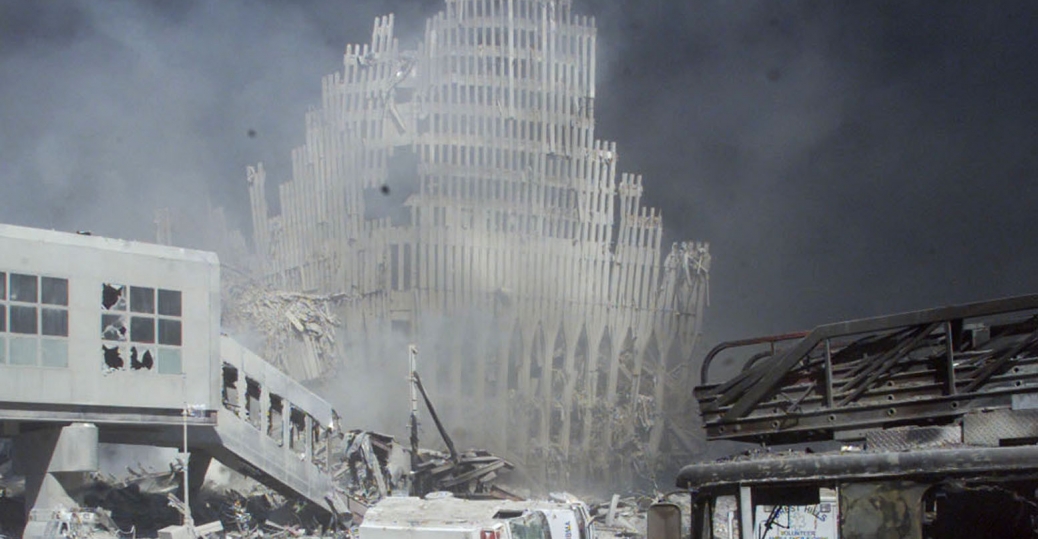
The Ghosts of 9-1-1: Reflections on History, Justice and Roosting Chickens
"Why should 'they' hate 'us'"? The very question is on its face absurd, delusional, revealing of an aggregate detachment from reality so virulent in its evasiveness as to be deemed clinically pathological. Setting aside the wholly-contrived “confusion” professed in the aftermath as to who might be properly included under the headings “we” and “they,” the sole legitimate query that might have been posed on 9-1-1 was—and remains—“How could ‘they’ possibly not hate ‘us’?""

The Illusion of Realism: What is the Future of Muslim Politics?
"In our so-called “post-ideological” world, even the most sincere observers have fallen trap to a myth perpetuated by the liberal order: that strategic political action or realpolitik transcends (or is devoid of) ideology. A case in point is the Tunisian Nahda movement’s decision to separate its political activities (primarily its political party) and its da’wah based activities. In 2016 the Nahda movement announced its shift from an “ideological movement engaged in the struggle for identity, to a protest movement against the authoritarian regime, and now to a national democratic party.""
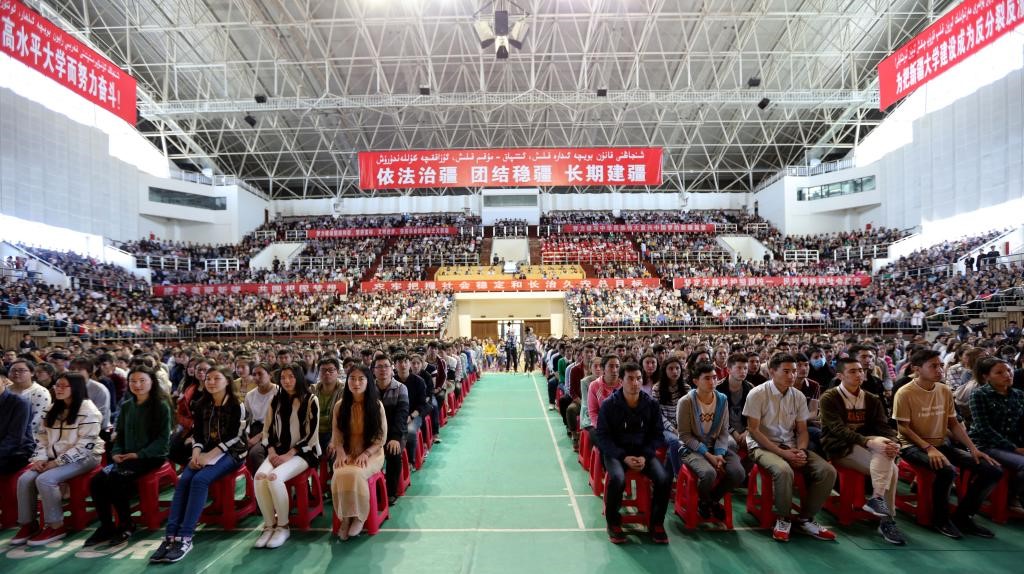
Uyghur Names as Signal and Noise
"In order to accomplish the mission of the “People’s War on Terror,” the Party Secretary of the university Zhou Xuyong declared that all “static” (zaoyin) and “noise” (zayin) would need to be eliminated. Anyone who demonstrated the slightest resonance with unapproved Islamic ideologies was to be purified through a process of “reverse osmosis” (fan shentou). He said the goal was to create an atmosphere in which Uyghur Islamic “extremists” scurried across the street like rats while the public surrounded them screaming their disapproval and beating them in righteous anger."

In the Afterlife of Genocide "Since August 2017, over 600,000 Rohingya have fled from Myanmar to neighboring Bangladesh. While Bangladesh is a densely populated country and major site of ecological crisis, the government has announced plans to build the world’s largest refugee camp there. The following is a photo essay compiled by two members of the London-based Islamic Human Rights Commission (IHRC). They arrived in the Chittagong District of Bangladesh in September 2017, during the most recent exodus of Rohingya from Rakhine State."

Deadly Milestone
"In the rest of this essay, we examine the consequences of the May 2013 massacre in Dhaka, Bangladesh. We collected written memories, reflections, poems, novellas, videos, other literary and non-literary artifacts in the aftermath of the massacre. These are some of the forms in which the massacre is memorialized within the Islamist counterpublic. These materials are the remaining traces — like dried blood — of the actual sets of events. It is a living archive that not only allows an immanent embodied critique of a secular society, but provides a marginal possibility for a realist speculation in retrospect."
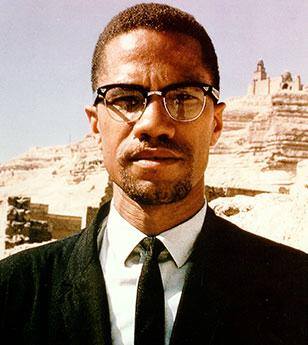
Blackness and Futurity: Malcolm X
"Malcolm’s leave to the Hajj is vital. A series of circumstantial instances placed him within a worldly, proximal corporeality, a rich hapticality of the flesh, with an illuminated, emphatic sense of fungibility more external than what reciprocity could provide. Where reciprocity, the vehicle for recognition, is, to its own freely detestable demise, non-exchangeable, the one who lives for recognition nullifies, in the end, from the start, the capacity to attain a freedom independent of the body. He frequents the times he was met with unconditional hospitality and appreciation on behalf of Muslims across complexion and convention."

The Syrian War and the Western Left’s Myopia
"Syria's brutal repression of mass demonstrations across Syria in 2011 marked a decisive model of how authoritarian Arab regimes could avoid the fate of Ben Ali in Tunisia and Mubarak in Egypt (and later, Gaddafi in Libya), who were seemingly swept away by popular revolutions, led by a coalition of leftist youth, liberal, constitutionalist reformers, and moderate, democratic Islamists, such as Ennadha and the Muslim Brothers. Bashar al-Assad and his 'Alawi generals and security officials were determined to eradicate the possibility of mass popular participation in political life, which would have made Baathist and 'Alawi control of the Syrian state and economy impossible."

A Virtue of Disobedience: A Conversation with Asim Qureshi "I had attended jumu‘ah (Friday prayer) at my local masjid, and taken my two older sons with me. The imam had been speaking of our duty to the state, and in particular was decrying what he called baghy or rebellion. To be honest, I didn’t have much of a problem with some of what he was saying, until he said that it was wrong to protest against the police. After leaving the masjid, I found myself sitting with my boys with the car off, having to explain to them that Islamic scholars do not always get everything right, that sometimes they make mistakes. I told them that regardless of whatever the imam said, it was important that they understood that they should never permit anyone to oppress them..."
Reviews
"Without taking anything away from interesting insights of the collective effort and the results presented in the book, several weaknesses are worth bringing up. For example, Sectarianization: Mapping the New Politics of the Middle East on the whole fails to present a sufficiently clear and coherent longitudinal explanation of the evolution of sectarianization in relation to modernity and the development of nation-states in the region. There are intimations of such a discussion, primarily in the introduction, but these are largely left unexplored in the subsequent chapters."
“But this is also a work that unnerves a disciplined or permitted logos and is a courting of the way the black archive has been formed outside of the enlightenment discourse, and in this way the philosophical history/fantasy of reason appears as Western misology at best. What is introduced are practices that reproduce the racialized, i.e. black body, for its biogenetic destruction. And while there is nothing new or novel in this post-colonial reading of modernity, there is something uniquely problematic in how this doubling of the world and language is predicated on the birth of a new sense, i.e. new aesthetic arrangements predicated simultaneously on outmoded or decaying sensibilities.”
"Perhaps the most reprehensible aspect of The Breadwinner’s plot is the deus ex machina role the US military is given in the film’s conclusion. In the last segment of The Breadwinner, just as Parwana has lost all hope in freeing her father, the military begins its invasion of Kabul. It is only through the chaos of bombs dropping from US fighter jets that Parwana is able to rescue her father from prison. Not a single civilian death is shown in this scene."
“Pierret provides a rich, detailed, thick description of the religious field of Syria from the 1960’s to the present, covering the years from the Baʿth coup to the ongoing Syrian Civil War. In describing the structure of Syria’s religious field, Pierret draws on the theoretical work of Pierre Bourdieu and other sociologists to consider Syria’s Sunni ʿulamaʾ, their institutions, financial basis, opponents, and strategies in engaging the realm of power […] Pierret’s study is an important contribution to the literature on ʿulamaʾ in the 20th century, the state, Islamism, and the nature of contestation and accommodation between these actors.”
“[C]ounter-terrorism efforts are doomed to failure because they do not address the underlying contextual circumstances that facilitate ‘radicalization.’ Faced with tremendous violence and senseless death, it should not be surprising that the jihadist message of salvaging past dignity, power, and self-worth resonates with a Sunni audience caught in a vicious and seemingly intractable civil war."
"Yet both philosophers were also highly cognizant of the need for intellectual rigor. For Ibn al-Arabi, this included a legendary familiarity with the Qurʾan and the hadith corpus, copious references to them in his voluminous writing, a meticulous and critical examination of philosophy (falsafa) and scholastic theology (kalām), and a pious observation of the shariʿa in his personal life. In Derrida's case, he worked closely with renowned French philosophers and writers of the late 20th century including Althusser, Hyppolite, Marion, Barthes, de Mann, and many North American academics."
What cannot be denied, says Foucault, is that a remarkable event took place on the streets of Tehran in 1978, and a community of people staked their lives in commitment to it. In this moment, the massive, impenetrable walls of global capitalism, market imperialism, and Westernizing modernism that surrounded everyday Iranians, tunneling them toward an inevitable future, floated up from the ground to reveal the glimmer of a different future. Was this hallucination, was it hysteria, ideological blindness? Was it Foucault’s hallucination or a collective one?
A Separation focuses on the separation of Simin and Nader, an Iranian middle class couple. Simin wants to leave Iran with her daughter in order to pursue a better future, while Nader, who is a banker, wants to stay in Iran in order to take care of his senile father. It portrays the emotional struggles that arise from this separation as their daughter (played by Asghar Farhadi’s own daughter) and those around them are significantly affected by it. It also centers around a conflict that surfaces between Nader, and his working class caregiver, as the latter accuses Nader of being the cause of her miscarriage. It explores issues of morality and law, as well as class dynamic in modern day Iran.
Drawing on an ethnography of oral traditions and an extensive archive of sacred texts from shrines across the Uyghur homeland, Rian Thum’s work seeks to amplify how Uyghurs themselves imagined their community prior to the state, prior to modernity, perhaps even prior to Islam. In essence, Thum is arguing that the identifications of the Uyghurs are not centered around a national imaginary or ethnic community, but rather it was articulated through the oral recitation and amendment of sacred texts during pilgrimages to the shrines of the “bringers of Islam” (wali).
In particular, Michot intends to demonstrate the ways in which Ibn Taymiyyah’s Mardin fatwa has been misinterpreted by academics, orientalists, and Islamists alike. Over the course of his text, Michot provides an extensive introductory argument - wherein he explicates upon the concept of hijra, the distinction between a domain of peace and of war, and emphasizes the pragmatic and personalist nature of Ibn Taymiyyah’s writing - a translation of the Mardin fatwa with several complementary fatwas, and fragmented interpretations of the Mardin fatwa written by famous Islamists and academics.
Multimedia
In this episode, our associate editor and media analyst Isra Ibrahim moderates a conversation with Abdel Malik Ali, Hannibal Shakur, and Tanzeen Rashed Doha on American-Muslim involvement in electoral politics, participation in civil society, and the COVID-19 epidemic, as it relates to larger concerns regarding the global war on Islam.
In this episode, Tanzeen Doha moderates a conversation with anthropologist Cabeiri Robinson and influential Sikh political organizer Shamsher Singh on the struggle in Kashmir, the social production of Jihad, the complex inner lives of the mujahideen, the repressive secular apparatus of the Indian state, and the possibilities of a new collaborative political-ethics in the post-911 era.
In this episode, Tanzeen Doha and Jalil Kochai interview renowned American Indian author Ward Churchill to discuss his groundbreaking essay “The Ghosts of 9-1-1”, his observations on genocide in the texts A Little Matter of Genocide and Kill the Indian, Save the Man, and his foreword to Stephen Sheehi’s book on Islamophobia. The conversation not only touches upon Churchill’s astute historical analysis of Islamophobia and native genocide as foundational to Western “civilization,” it takes a spontaneous turn towards contemporary histories of struggle, and ideas for political and ethical action outside of the paradigm of settler civil society and citizenship.
Yassir Morsi moderates a live roundtable discussion with Hannibal Abdul-Shakur, Tanzeen R. Doha, and Isra Ibrahim, the authors of the essay “The Wolf and The Fox: Message from the Grassroots on American-Muslim Leadership”, wherein they discuss the state of Islamic leadership in America (or the lack thereof) and the relationship between anti-blackness and the global war on Islam. Amir Abdel Malik Ali of the Oakland Islamic Community Center also joins in by phone.
Along with its central narrative, 99 Nights in Logar is made up of a number of tales told to the protagonist by his parents, relatives, and other Logarian. The following is an exclusive reading of one of these tales by the author.
In this selection from his 1852 Fourth of July Oration, Frederick Douglass denounces the hypocrisy of expecting Black Americans to celebrate the fourth of July in the USA. Douglass shows that Black Americans have a counter-narrative to the white american "independence day" that must be heard - or else America is destined to the fate of Babylon.
In this audio recording, Tyson Amir examines the battle over Malcolm X’s legacy. By weaving together personal narrative and Black social history, he complicates the reduction of Islam in America to its post-9/11 iteration. Rather, he turns his gaze toward the Islam “born, bred, and lived in the midst of the most heinous system of slavery in the history of our species.” Amir situates the figure of Malcolm X within this genealogy and demonstrates the ways in which his legacy is frequently reduced to (a misinterpretation of) his post Hajj moment. While these narratives claim Malcolm X as a post-racial advocate of non-violence, Amir articulates Malcolm’s firm commitment to self-defense, and the undying “black anger” that inspired many.
Interviews
“This book was written in a style that I hope will be read as a conversation…I hope what people will take from it, is that I am positing some general ethics regarding the ways in which Muslims engage with the world through our faith and politics, and that it is really the subsequent discussions that will help to provide flesh on the bones of my thinking. So please, do write to me, and let me know what you think of what I have written, and if I have written something wrong, then hopefully we can refine these ideas until we have something that will look more like a manual for emancipation”
In my work on the Bible and Qur’an, I have often found that early Western authors sought to understand the Qur’an in light of the Biblical tradition. Any difference they found in the Qur’an they saw as a mistake that Muhammad made in understanding or retelling the story. However, more recently scholarship, such as that of Marilyn Waldman, demonstrates that the Qur’an has a particular goal in using Biblical material.
Visual Essays
Since August 2017, over 600,000 Rohingya have fled from Myanmar to neighboring Bangladesh. While Bangladesh is a densely populated country and major site of ecological crisis, the government has announced plans to build the world’s largest refugee camp there. The following is a photo essay compiled by two members of the London-based Islamic Human Rights Commission (IHRC). They arrived in the Chittagong District of Bangladesh in September 2017, during the most recent exodus of Rohingya from Rakhine State.
In July 2017 I returned to my homeland Afghanistan for the fourth time in my life. With my Canon 70D DSLR in hand, I traveled around the capital city of Kabul and my native province of Logar, capturing images of the ordinary. While Kabul has transformed from a site of strict Islamic order to a dysfunctional modern city controlled by the US-supported Afghan government, much of Logar has remained as it was since I first visited as a child in 1999. Part of this stems from the presence of the Taliban, who have resisted modernization projects in the countryside. Despite - or perhaps because of - these differences, both provinces are important sites at which to trace the shadow of the American occupation.
Yet despite these variations in the engineering project, capitalist secularism instead of Maoist socialism, much remains the same. As was the case during the Cultural Revolution, in our current moment thousands of mosques are being destroyed, Islamic teachers or mollas and their followers or talip are being imprisoned and placed in indefinite detention in political reeducation labor camps. Of course the rise of transnational communications that has accompanied the secular, colonization of the Uyghur homeland has also given rise to increased reception of global Islamic movements, and this, more than an intensification of indigenous Islamic traditions, is what is driving the Uyghur turn toward reformist Islam.
UAE-based artist Imranovi was born and raised in Damascus, though fled his country following the outbreak of conflict to avoid conscription into Bashar Al Assad's army. It was while studying English Literature at University in Syria that he found his passion for graphics and software: a talent he soon began to refine and develop.























